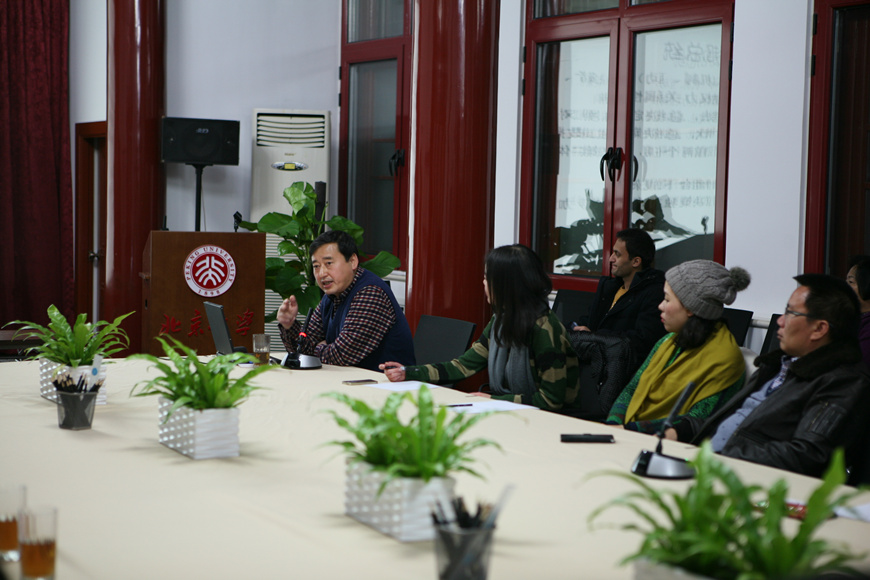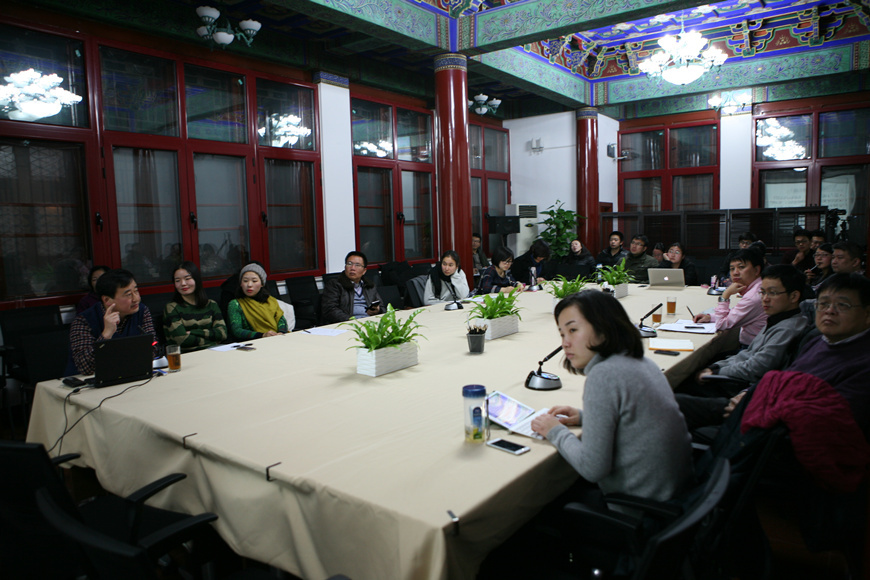
On November 23rd, 2015, the Institute of International and Strategic Studies (IISS), Peking University (PKU) held the 3rd lecture of North Pavilion Seminar series, Prof. Guan Guihai, Executive Vice President of IISS, made a keynote speech on "who is influencing the diplomatic decision making of Russia" and shared opinions with the present teachers and students. Prof. Wang Jisi, President of IISS, and Dr. Lei Shaohua, Senior Research Fellow, participated in the lecture which was presided over by Associate Prof. Gui Yongtao, Assistant President of IISS.
Prof. Guan Guihai focused on the presidential decision making circle to analyze the procedures for diplomatic decision making of Russia. In his opinion, Russia's decision making achievements are generally observed from internal and external perspectives. Under interaction between the international mechanism and main domestic players, the diplomatic decision making is usually divided into two types, namely passive response under stress and long-term planning poised for an opportunity to take off. The main point still lied in structural analysis of the domestic political power and the uppermost priority undoubtedly was the presidential power.
When analyzing the functioning mechanism of the presidential power in diplomatic decision making, Prof. Guan compared the ruling styles of three presidents since founding of the Russian Federation and concluded that they were all characterized by the greater jurisdiction because the president of the Russian Federation was not only the decision maker of diplomatic policies but also the supervisor of their execution; whereas the specific diplomatic guidelines and implementation procedures varied from one president to another because they were dependent on the power structure of the president himself. Putin, as a relatively strong politician, has implemented various rights granted by the Constitution and basically established the foundation for the president to independently perform duties ever since he took office.
Prof. Guan introduced the mechanism guarantee for presidential diplomatic decision making, i.e., specific rights and liabilities of different positions in the decision making team and basic conditions of the current personnel, and then from this he further pointed out that the circle which influenced the presidential decision making included Russia's strong departments, civil service groups, state owned enterprises, private oligarchs, and think tanks, etc., among which the strong departments were the real leading force in internal decision making and the others tended to be foil. He also specially analyzed how to distinguish the think tanks in Russia, and took the Ukraine issue as an example to analyze how the above mechanism functions.

Prof. Guan pinpointed in his conclusion that the diplomatic policies highlighted the phenomenon of political power concentration in Russia. Due to lack of strict procedures and fixed mechanism, the effectiveness and consequences of such kind of decision making model entirely depended on the personal prestige and leadership art of the president; meanwhile, his decisions always presented to be featured by crisis response which was always mistaken by the outside; therefore, the future trend of Sino-Russian relations would inevitably be influenced by the attitude and identity transformation of the president and we should pay attention to such kind of potential mechanism risk.
During the Q&A session, Prof. Guan exchanged opinions with the present teachers and students on President Putin's influence on decision making, the behavioral styles of other politicians in Russia, oil and gas cooperation between China and Russia in the future, as well as other strategic chips of Russia, etc.

